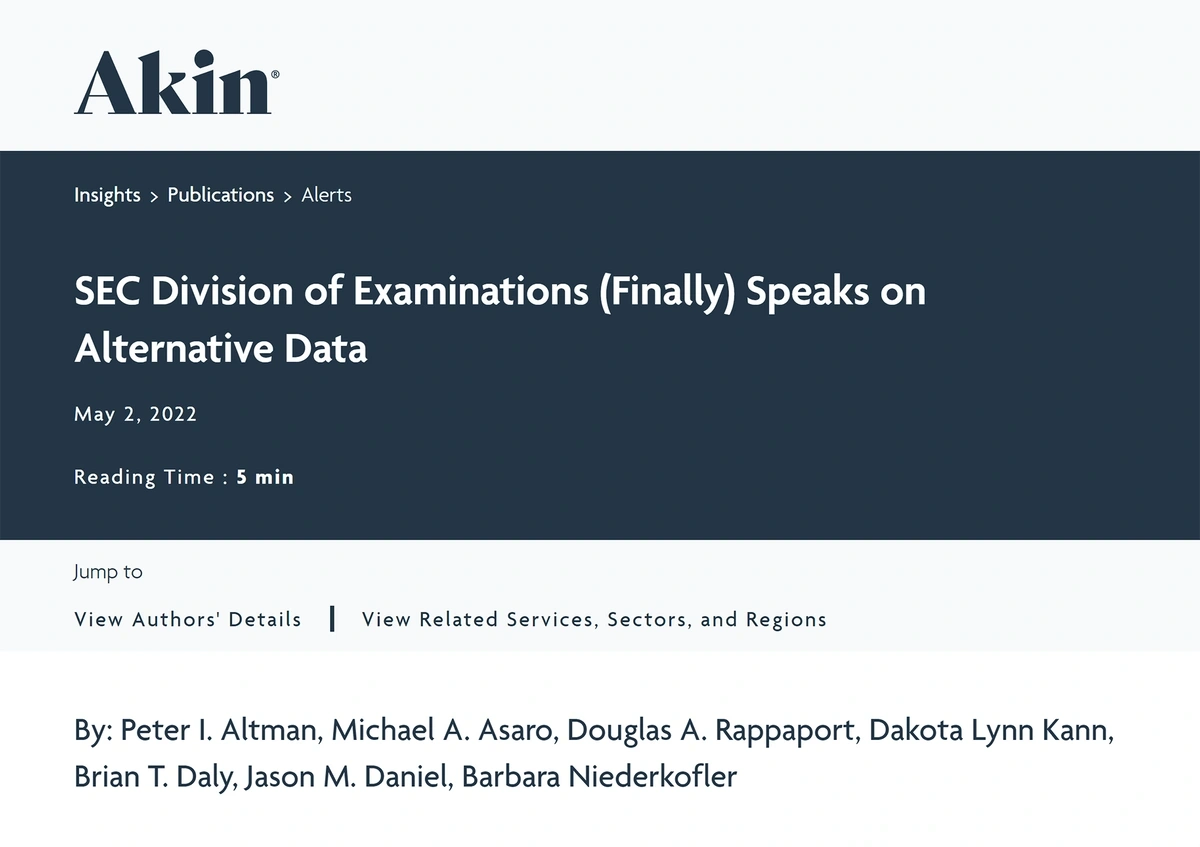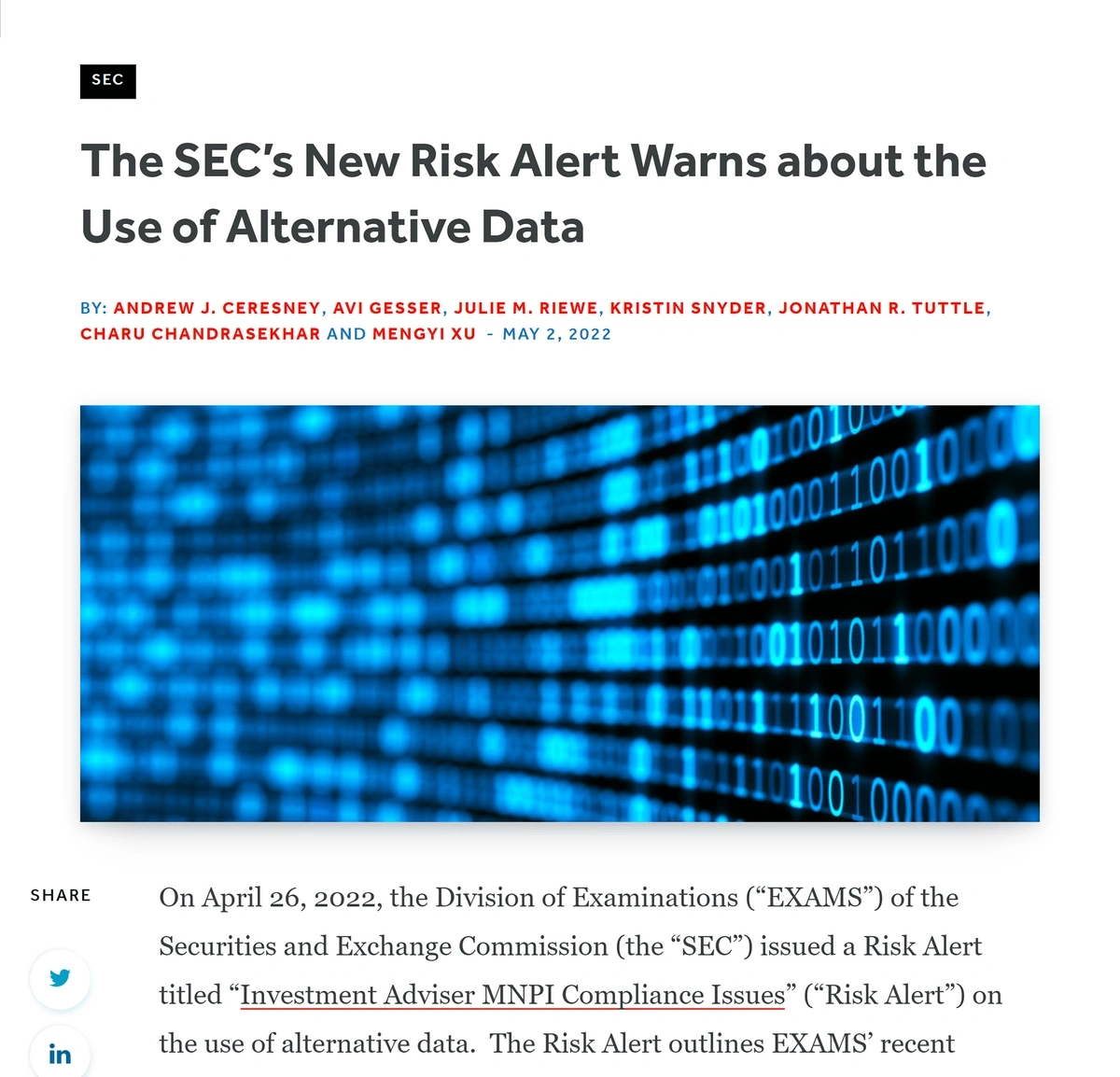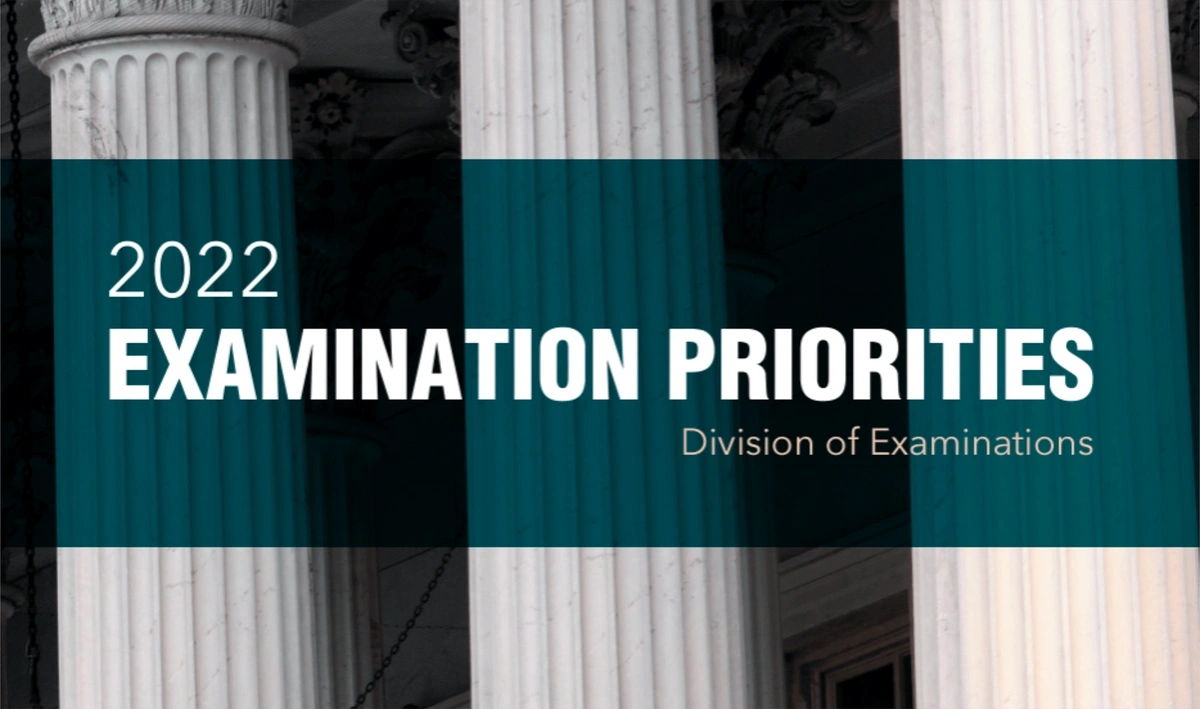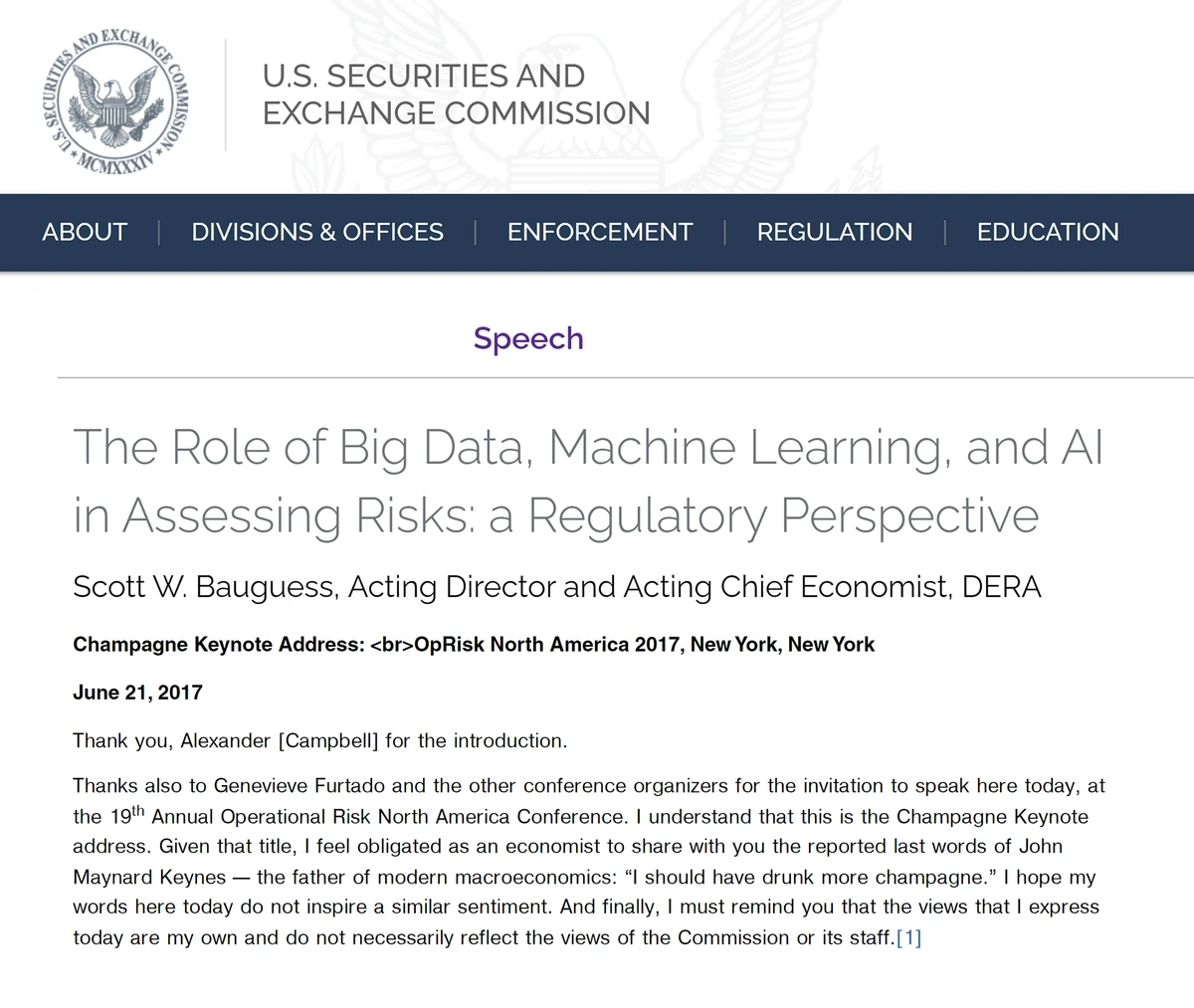Get Advanced Insights on Any Topic
Discover Trends 12+ Months Before Everyone Else
How We Find Trends Before They Take Off
Exploding Topics’ advanced algorithm monitors millions of unstructured data points to spot trends early on.

Keyword Research
Performance Tracking
Competitor Intelligence
Fix Your Site’s SEO Issues in 30 Seconds
Find technical issues blocking search visibility. Get prioritized, actionable fixes in seconds.
Powered by data from
Alternative Data and the SEC
Valued at $4.9 billion in 2023 and projected to grow 28% annually through 2032, the alternative data (AD) market is redefining the game of investing.
In an effort to keep up with this new use of technology, the Securities and Exchange Commission (SEC) has sharpened its focus on alternative data compliance.
Source: Akin
This article examines the SEC's rules and regulations on alternative data, exploring the implications for investors leveraging AD in their portfolios and strategies. Let’s dive in.
SEC’s Current Position On Alternative Data
The SEC’s current stance permits the use of alternative data by investors and advisers as long as:
- AD providers are properly vetted and are compliant with data privacy regulations
- the provider due diligence process is recorded and documented by advisers
- the due diligence process is periodic and addresses changes in data acquisition by providers
There are three sources from recent years that investors can draw from in inferring the SEC’s stance toward the use of alternative data:
- the 2022 Risk Alert
- the 2021 charging of AD provider App Annie
- the 2022 Examination Priorities announced by the SEC’s Division of Examinations (EXAMS)
In all of these sources, the SEC touches on a key concept of financial regulation: Material Non-Public Information (MNPI).
What is MNPI?
Material Non-Public Information is at the core of SEC regulations that concern insider trading and misconduct.
In plain terms, MNPI is information that is both confidential and influential in an investor’s decision to invest in a particular security. Investors may not trade and profit from MNPI before it becomes public.
From the most recent language used by the SEC, the Commission plans to treat alternative data like any other source of information that investors use to formulate theses and strategies.
Trading on data that contains MNPI, whether alternative or traditional, violates SEC regulations.
The SEC’s enforcement against SAC Capital Advisors for insider trading from 1999 to 2010, leading to a record $1.8 billion settlement, highlights the agency’s dedication to combating financial misconduct.
Source: Bloomberg
SEC Risk Alert
In April of 2022, the SEC issued an alert to investment advisers calling out observed deficiencies in their policies regarding the use of alternative data.
The agency highlighted the need for robust frameworks to mitigate the risk of misusing Material Nonpublic Information (MNPI).
It pointed out inconsistencies in vendor diligence processes and the lack of comprehensive policies to assess the legality and ethical implications of sourcing alternative data.
Finally, the SEC encouraged the revision of advisers’ Codes of Ethics to ensure compliance with the Investment Advisers Act of 1940, aiming to safeguard market integrity and investor trust.
Source: Debevoise Data Blog
The App Annie Case
The SEC's case against App Annie and founder Bertrand Schmitt set a significant precedent, marking the first charge against an alternative data provider for securities fraud.
The allegations centered on misleading practices and false statements surrounding the source and use of App Annie's data.
Despite promising to anonymize and aggregate customer data in their models, App Annie used detailed, individual data to enhance their estimates for trading firms from 2014 to 2018.
The SEC found that App Annie's actions were a clear violation of trust, as the company used data in ways that were not disclosed.
The SEC's order pointed out that App Annie and Schmitt understood that companies would not share their data if they knew it would be disclosed to third parties. App Annie and Schmitt did not admit or deny the SEC's findings but agreed to pay over $10 million to settle the matter.
Source: Techcrunch
This case is a first in showing the SEC's focus on policing the misuse of alternative data, by both providers and users.
2022 Examination Priorities
The SEC's Examination Priorities report is published annually and outlines the areas the SEC intends to focus on during its examinations of brokers, dealers, investment advisers, and other entities.
The document helps regulated entities understand regulatory expectations and prepare for potential examinations.
In the 2022 Examination Priorities report, the SEC stated that “to the extent that firms are using alternative data or data gleaned from non-traditional sources as part of their business and investment decision-making processes, reviews will include examining whether RIAs (registered investment advisers) [...] are implementing appropriate compliance and controls around the creation, receipt, and use of potentially MNPI”.
Source: SEC
In other words, this is the SEC officially nudging investors and advisers to get their processes in order, as the scrutiny of alternative data is likely to become more pronounced in the coming years.
Alternative Data Best Practices
For investors to remain compliant with SEC rules when using alternative data, here are some best practices to follow:
- Develop Written Policies: Create comprehensive written policies that specifically address the potential risks of using alternative data, particularly focusing on the unintentional receipt and use of MNPI.
- Conduct Thorough Diligence: Systematically perform due diligence on alternative data providers to ensure their practices do not pose a risk of exposing MNPI. This process should be memorialized and consistently applied.
- Understand Legal Obligations: Become familiar with the legal terms, conditions, and obligations associated with collecting and using alternative data, paying close attention to red flags concerning data sources.
- Establish Escalation Channels: Enable staff to recognize and report concerns with alternative data usage. Additionally, establishing clear channels for investigating and resolving identified issues ensures that risks are effectively managed.
- Regular Reviews and Updates: Establish a mechanism for regular review and reevaluation of data sources and providers, especially when there are changes in data collection practices or as time passes, to ensure ongoing compliance.
- Maintain Documentation: Keep detailed records demonstrating adherence to these policies and procedures, which can be crucial for demonstrating compliance in the event of an SEC examination.
SEC and AD: Future Considerations
The SEC's regulations around alternative data are evolving, keeping up with the growth and maturity of the AD industry.
Looking ahead, we can expect:
- Increased focus on transparency: the SEC might require firms to disclose more about their data sources, methodologies, and how they integrate alternative data into their investment strategies.
- Ongoing due diligence: regulations may require due diligence to be re-performed as providers’ data collection methods change.
- Adoption of technological tools: the SEC will leverage advanced technology to monitor regulated entities, ensuring compliance in real time.
Source: SEC
As these changes unfold, the SEC's evolving regulations will shape the compliance landscape and allow greater confidence in alternative data-driven strategies.
Stop Guessing, Start Growing 🚀
Use real-time topic data to create content that resonates and brings results.
Exploding Topics is owned by Semrush. Our mission is to provide accurate data and expert insights on emerging trends. Unless otherwise noted, this page’s content was written by either an employee or a paid contractor of Semrush Inc.
Share
Newsletter Signup
By clicking “Subscribe” you agree to Semrush Privacy Policy and consent to Semrush using your contact data for newsletter purposes
Written By


Josh is the Co-Founder and CTO of Exploding Topics. Josh has led Exploding Topics product development from the first line of co... Read more










